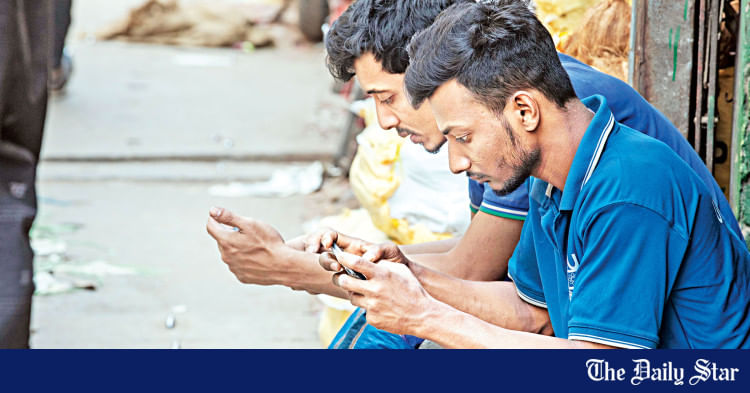The cabinet yesterday approved a new telecom licensing policy aimed at abolishing the fragmented licensing regime while capping foreign ownership in telecom and related services.
The policy simplifies the sector by consolidating more than 20 types of licences into three main categories: national infrastructure, international connectivity, and network access service providers.
Under the previous system, voice and internet services in Bangladesh had to pass through multiple intermediary operators, a structure long criticised by experts for inefficiency and higher costs.
“The new policy reduces the number of intermediaries investing only a few crores in a multi-thousand-crore ecosystem and collecting tolls, while eliminating licences not used elsewhere in the world,” said Faiz Ahmad Taiyeb, special assistant to the chief adviser for telecom and ICT.
Under the new framework, operators of International Internet Gateways (IIG), Interconnection Exchanges (ICX), National Internet Exchanges (NIX), and International Gateways (IGW) will be phased out as their existing licences expire.
Bangladesh currently hosts around 20 IGWs, over 30 IIGs, and more than 20 ICXs, with almost all licences due to expire by 2027.
This reform is set to overhaul the telecom ecosystem, as all these operators are local and were licensed under the previous government or during the former caretaker government.
The process of awarding many of these licences has faced widespread criticism, with the BTRC identifying a lack of transparency in fund management in certain cases.
For instance, in 2014, IGW operators formed a cartel under the IGW Operator Switch model, approved by the BTRC without policy amendments, allowing certain operators to dominate the market and secure higher revenues.
Transparency concerns also emerged over Tk 631 crore in so-called Market Development Expenses, with more than 95 percent channelled through a single account under Beximco Computers, co-owned by Salman F Rahman, who was also an adviser to ousted premier Sheikh Hasina. The BTRC referred the matter to the Anti-Corruption Commission, according to BTRC documents.
However, Asif Rabbani, president of the IGW Operators Forum (IOF), said that IGW operators alone have invested Tk 5,000 crore and employ many skilled engineers and technologists. To date, they have paid Tk 10,500 crore in revenue to the BTRC.
“Yet, in the drafting of new policies and regulations, there is very little coordination with us. This is highly unacceptable and deeply disappointing,” he said.
He added that the new policy risks transferring even the small businesses held by local investors to foreign MNOs, further strengthening their dominance despite proven local capacity.
The new licensing regime allows existing licensees to obtain licences under the updated framework, provided they meet prescribed eligibility criteria and comply with the conditions outlined in the respective licensing guidelines.
FOREIGN OWNERSHIP CAP DEBATE
Foreign ownership in the network access licence category, which includes telecom operators, is capped at 85 percent, ensuring at least 15 percent domestic participation through joint ventures, public listings, or BTRC-approved structures.
Domestic investors may hold up to 100 percent equity without restriction. Existing operators have three years to offload 15 percent of their shares.
Among the three private operators, only Grameenphone exceeds 15 percent local ownership, with Telenor holding 55.8 percent, Grameen Telecom 34.2 percent, and 10 percent by public and institutional investors.
Meanwhile, Axiata holds a 61.82 percent share of Robi, while Bharti Airtel holds 28.18 percent, and the remainder is held by general investors. Banglalink is fully foreign-owned by VEON.
Tanveer Mohammad, chief corporate affairs officer of Grameenphone, said, “The new licensing policy is a positive step towards unification of licences, moving away from fragmented licensing.”
He, however, urged the government to finalise realistic guidelines.
“Mandating a 15 percent local share offload may concern investors, who have already listed 10 percent of shares in the local stock market and invested billions with long-term plans,” said Shahed Alam, chief corporate and regulatory affairs officer at Robi.
Taimur Rahman, chief corporate and regulatory affairs officer at Banglalink, lauded the provisions for active network and spectrum sharing, but expressed concerns that mandated ownership requirements could discourage foreign investment.
Telecom policy expert Abu Nazam M Tanveer commented that excluding group-level entities from cross-licensing restrictions has minimal effect on large corporations. “This effectively imposes no real cross-ownership limits across the industry’s three major layers, leaving the sector vulnerable to distorted competition.”



